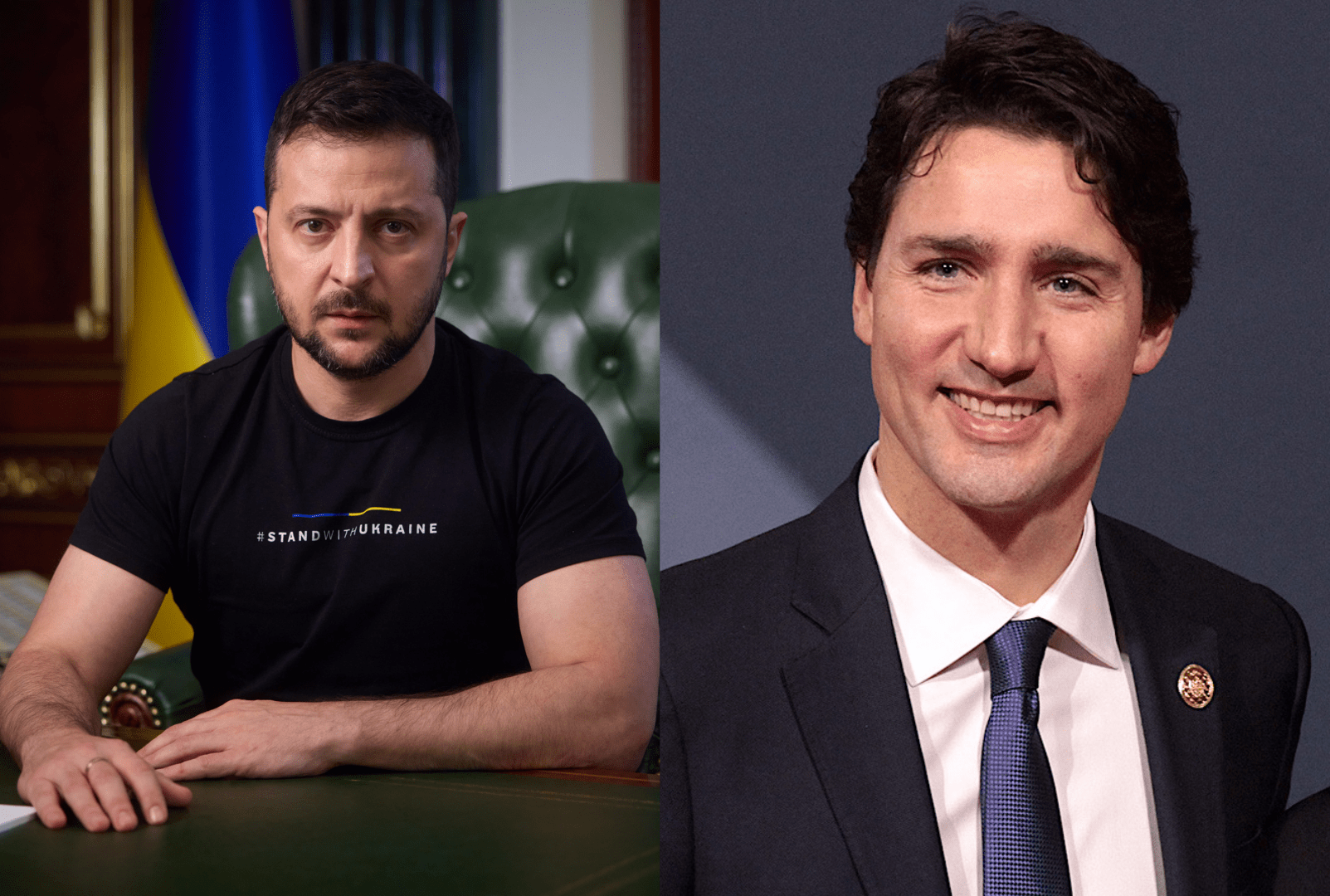On Sept. 22, Ukrainian President Volodymyr Zelenskyy travelled to Canada for the first time since Russia invaded Ukraine in February 2022. Over the course of his trip, President Zelenskyy visited Ottawa and Toronto, encouraging continued Canadian support and promoting unity between Canada and Ukraine in a fight for democracy.
After a bilateral meeting with Zelenskyy, Prime Minister Trudeau announced a new aid package: $650 million of financial assistance paid over three years to supply Ukraine with armoured vehicles, a streamlined trade agreement — CUFTA, and new sanctions targeting 63 Russian individuals and entities. The care package also includes support for training Ukrainian pilots and $34 million to be spent on mental health, recovery, and reconstruction initiatives.
With this new announcement, Canada’s committed support for Ukraine now totals over $9.5 billion since early 2022.
In Toronto, Trudeau gave a passionate speech proclaiming Canada’s unwavering alliance, stating that “Canada will stand with Ukraine with whatever it takes for as long as it takes.”
The new assistance package garnered even more significance when the White House announced they would be pulling any further aid to Ukraine from the spending bill to avoid a government shutdown.
“That’s really not a lot of money,” says Gerald Bareebe, an assistant professor in the department of political science. “If we compare that with the other countries that have the same economic footing as Canada, let’s say, Finland and Sweden, they are giving way [more] than Canada is giving. Another example, Estonia and Poland, they are giving way [more] to Ukraine. If you ask me, I’d say that Canada is not giving enough. Canada should be doing more than what it’s doing.”
Canada has continued to invest significant resources into humanitarian aid for Ukraine, as well as helping Ukrainian refugees in the country. Since Russia’s invasion of Ukraine, Canada has welcomed more than 175,000 Ukrainians and their family.
David Dewitt, a professor in the department of political science, suggests that given the stress put on Canada’s Department of National Defence (DND) by the announced budget restrictions for the coming year, “the extent to which the government and especially DND carry through with the announced commitments to Ukraine will take on greater political significance and meaning.”
Bareebe explains that “Canada’s biggest role in supporting Ukraine might be the firmness of its stance, where the prime minister has played a very important role is speaking out all the time against Putin and the war. That is very important, as important as sending the money itself.
“Many people start to compare the situation with the amount of money that is being sent to Ukraine. They think that money should be more invested in national economic development,” he adds.
Dewitt states that “public opinion surveys continue to show ongoing support for Ukraine, as do the ‘debates’ in Parliament. I think that in general Canadians have bought into the argument that this is a war of defence both of Ukraine as well as European and western democracy.”
It seems unlikely for Canada’s support of Ukraine to waiver, considering Canada’s large Ukrainian community and the general support for Ukraine. “There is a very large and significant Ukranian-Canadian population, and [the war] is an issue around which they likely will cohere when it comes to the next federal election,” says Dewitt.
Bareebe notes that “it is going to be very difficult for anybody in Canada to become a prime minister if they do not support Ukraine.”
The timing of Zelenskyy’s visit can be explained by several factors, including Ukraine’s desire to join the European Union and solidify its alliance with the West ahead of winter.
According to Bareebe, “Ukraine cannot entirely rely on the United States because the United States’ political system keeps changing all the time and you can never know what the next president’s opinion on Ukraine will be.” Although the White House announced they would attempt to pass a stand-alone bill worth $20.6 billion for Ukrainian aid, it is likely the bill will see a pushback from Republicans in Congress. Therefore, it is important for Zelenskyy to consolidate relationships with his other Western allies soon, as “doing this before winter sets in is important given the perceived lack of major successes in the Ukrainian counter-attacks this spring/summer,” according to Dewitt.
Dewitt also shares his opinion on the future of Canada’s ties with Ukraine, stating that “much depends on the outcome of the war, but the basics remain: stronger bilateral relations due to [Ukraine’s] needs, what [Canada] can provide, [Canada’s] own trade and investment interests, and the large Canadian-Ukranian presence. If the future includes Ukraine’s accession into the EU and some association with NATO, that will provide incentives for even stronger connections.”
Despite the uncertain outcome of the war in Ukraine, there is little doubt that there is much support for continued Canadian-Ukrainian relations in the future. Whether due to the prominence of the Ukrainian diaspora in Canada, the recognition of Ukrainian bravery, the sympathy extended to Ukrainian families or Ukraine’s potential future in NATO, Canada’s commitment signifies that Canada and Ukraine will continue to cooperate and work hand in hand.




